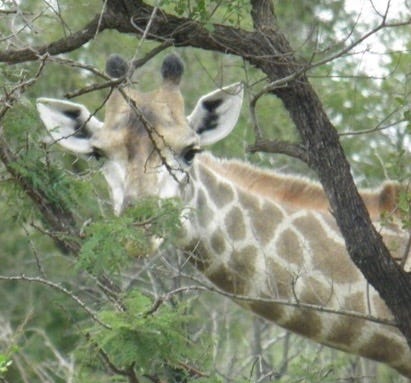Only human beings learn
How do you build a sustainable business? Lessons in learning, persona, ecology and evolution from The Living Company
In tech, we spend a lot of energy on how to grow big and grow fast. It sometimes feels like tech culture is all about the short term. Today and tomorrow, but not the day after. Yet, Apple and Microsoft will both turn 50 in the next couple of years. Both companies are generating more value than ever.
There is no doubt tech is here to stay. Maybe its time to think long term. How do you build a sustainable business?
I really enjoyed reading “Building a business that endures” from Femstreet. The article tackles exactly that subject. Its a good selection of practical ideas from leading female entrepreneurs.
It also reminded me of one of my favourite thinkers. Arie De Geus was head of strategic planning at Royal Dutch Shell during the 1970’s oil shocks. He had developed a planning scenario for a massive price rise of this kind. That forward planning enabled Shell to emerge much stronger from the crisis.
Later in his career, he studied large companies that have survived for a long time. He calculated that the average lifespan of a stock market listed company is about 40 years, half the human equivalent. Why do some companies last much longer?
He published his results in a short but brilliant book, The Living Company. Its one of only two business books I refer back to again and again. The key lessons for a building a sustainable business are simple yet profound:
Learning
Great companies are built on accumulating and growing knowledge. Capital is just a resource.
Building the memory of the future. Listen and learn in the environment you operate in now because change is all around you.
Tools for foresight. Planning can give you the illusion of certainty. Think about options and alternatives rather than focus on a fixed path.
Decision making is a learning activity. Why did you make the choice you did? What information did you have and what was missing? How can you do better next time?
Persona
Only human beings learn. The company is a living organism made of people. Those people accumulate the knowledge that creates the business value. They define the culture and the future.
Managing for profit or longevity? This is a false choice. The best route to profit is also the route to a sustainable business.
Ecology
Flocking. Allow new and different ideas to propagate. Give your people the freedom to support and grow the things that work. I love this way of thinking. Its the inverse of top down, centralised strategic planning.
Tolerance. Allow space for some rule breaking and diversions. Give your people freedom to make the right choices based on what they see around them.
The corporate immune system sets the limits. Culture is about the boundaries of tolerance. Not a strict set of rules, processes or behaviours.
Evolution
Conservatism in finance. As your business grows, build some reserves. That gives you the capacity to survive and learn when things are tough. Very important, your business is your biggest risk. Don’t play in high risk financial markets as well.
Too much is as bad as too little. Don’t just accumulate cash for the sake of it. Your job is to reinvest as well.
Nobody should have too much power. This fits with the immune system as well. Distributed networks of power and more resilient and more able to change than centralised decision making. This can be a very hard step for entrepreneur led businesses.
I was first introduced to these ideas during a strategy course run by my firm in Denmark about 25 years ago. They still resonate powerfully with my experience of business, both successes and failures.
How can you apply this in your business? How well do you understand your context, people and culture? What have you learned and what can you change? What is the next right thing for you and your business?




